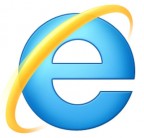Microsoft has a long and sad history of screwing the web. Internet Explorer 6 is responsible for years of web developer pain, slow web innovation, and a lot of security holes. And because it was built into Windows, it was the dominant browser for web developers (and malware) to target.

Flash (but not Adobe) forward to today, Chrome leads, with IE taking third in some estimates. Microsoft continues to release Internet Explorer versions about every other year, while the other browser vendors release a new version every 6 weeks. It seemed like Microsoft was fine with being the ugly, slow-witted duckling of the browser market.
But back in August, Microsoft announced that the next version of IE would be based on a new engine called Spartan, and there were scant few technical details to scrutinize. Some hoped Microsoft might adopt a more modern core for their fresh start, but unfortunately a source at Microsoft has shared with Paul Thurrott that Microsoft is developing their next IE on a new engine, rather than adapt one of the many open source options.
His source reports that Microsoft weighed the options of using Apple’s Webkit or Google’s Blink as an engine (alledgedly favoring Blink), but they decided to create their own because Google is in control of Blink. This really bugs me for many a reason:
- They’re already lagging behind the competition, and now they want to start fresh?
- Shouldn’t you have started right after IE6’s gross 5-year stagnation?
- They do know Webkit and Blink are open source so they’re able to be forked, right? Google did the same thing with Webkit, so why is this an issue for them to do so?
- Oh great, yet another engine to test against, and they’re keeping the Trident engine around in another version of IE shipping with Windows 10?
- Will they open source this? Will they allow contributions to the engine?
- What will the release schedule look like? Maybe versioning independent of consumer Windows versions?
- Hey, why not open source Trident and your website compatibility list so that other browsers can adapt your terrible compliance standards when users come across a site that won’t even load because it was made 10 years ago (government, healthcare, printer configuration pages, etc.)?
- How long until it’s on parity with the other engines in terms of speed, web standards, and platforms? Are they going to pull another Do Not Track controversy?
It would be great if they addressed all these issues, and it would be great if Trident went away completely, but I have zero confidence in Microsoft to deliver on any of these out of the gate or ever. Their browser development history has shown gross negligence when it comes to web standards, user safety, and innovation. I wish I could just forget it ever existed, but it’s a stain the web must continue to deal with because Microsoft thought it would be cool to wipe out the competition, then immediately stop development.

Leave a Reply